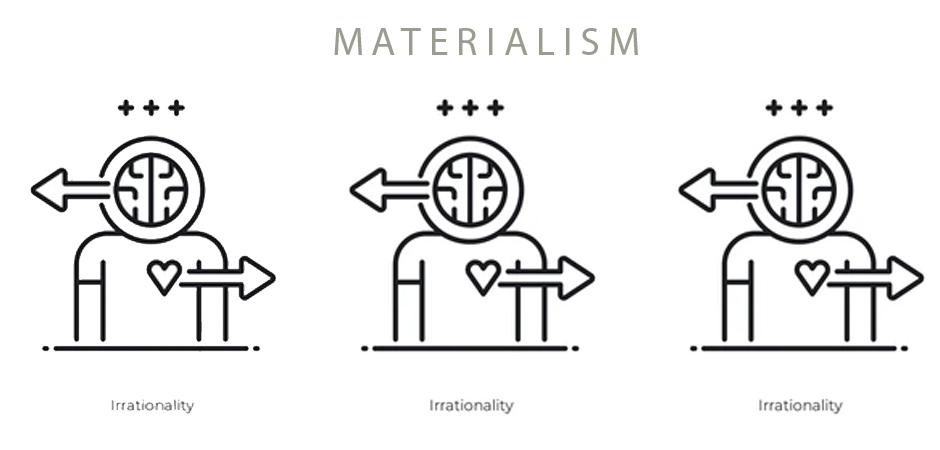The Illusion of Materialism: Why Reality Contradicts Belief

The Illusion of Materialism: Why Reality Contradicts Belief
Some irrational Materialist Beliefs:
Life appears to be designed, but it's not.
Justice, beauty, and truth seem to demand a non-material explanation, but in fact, they don't.
The existence of consciousness and subjective experience may appear to require a non-physical explanation, but it actually doesn't.
DNA may look like it contains information, but it doesn't.
The laws of logic may appear immaterial, universal, and invariant, but they are not.
Similarly, the existence of mathematical truths and principles may seem separate from the physical world, but they are not.
Objective morality may seem real, but in fact, it doesn't exist.
While the Earth may appear finely tuned for life, it's not.
The human mind's capacity to reason and understand abstract concepts may seem to demand an immaterial explanation, but it doesn't.
Finally, the origin of life and the emergence of consciousness may appear to require a miracle or special creative act, but they don't.
-----
The irrational beliefs listed above create a significant amount of cognitive dissonance for materialists. This is because, on the one hand, they hold onto their materialist beliefs that everything in the universe can be explained by physical and natural causes, while on the other hand, they are confronted with phenomena that appear to be best explained by non-material or supernatural causes.
For instance, when confronted with the appearance of design in living organisms or the appearance of fine-tuning in the universe, materialists may experience cognitive dissonance because these phenomena appear to point towards intelligent design or a purposeful universe, which conflicts with their worldview. Similarly, the phenomenon of consciousness and subjective experience presents a challenge to the materialist worldview, since it cannot be fully explained by physical or material causes.
This cognitive dissonance can lead to a variety of responses, including denial of the evidence, the adoption of ad-hoc hypotheses, or a reluctance to engage with the evidence. The abundance of these examples that contradict the materialist worldview cannot be ignored. One or two examples could be dismissed as anomalies, but the sheer quantity of them suggests a deeper problem with the materialist belief system. It's apparent that materialists cling to their ideology even in the face of overwhelming evidence that points to the limitations of their worldview. This is problematic because it reveals a lack of scientific rigor and open-mindedness, which should be at the core of scientific inquiry. It also suggests that materialism is more of a belief system than a rational approach to understanding the world.
